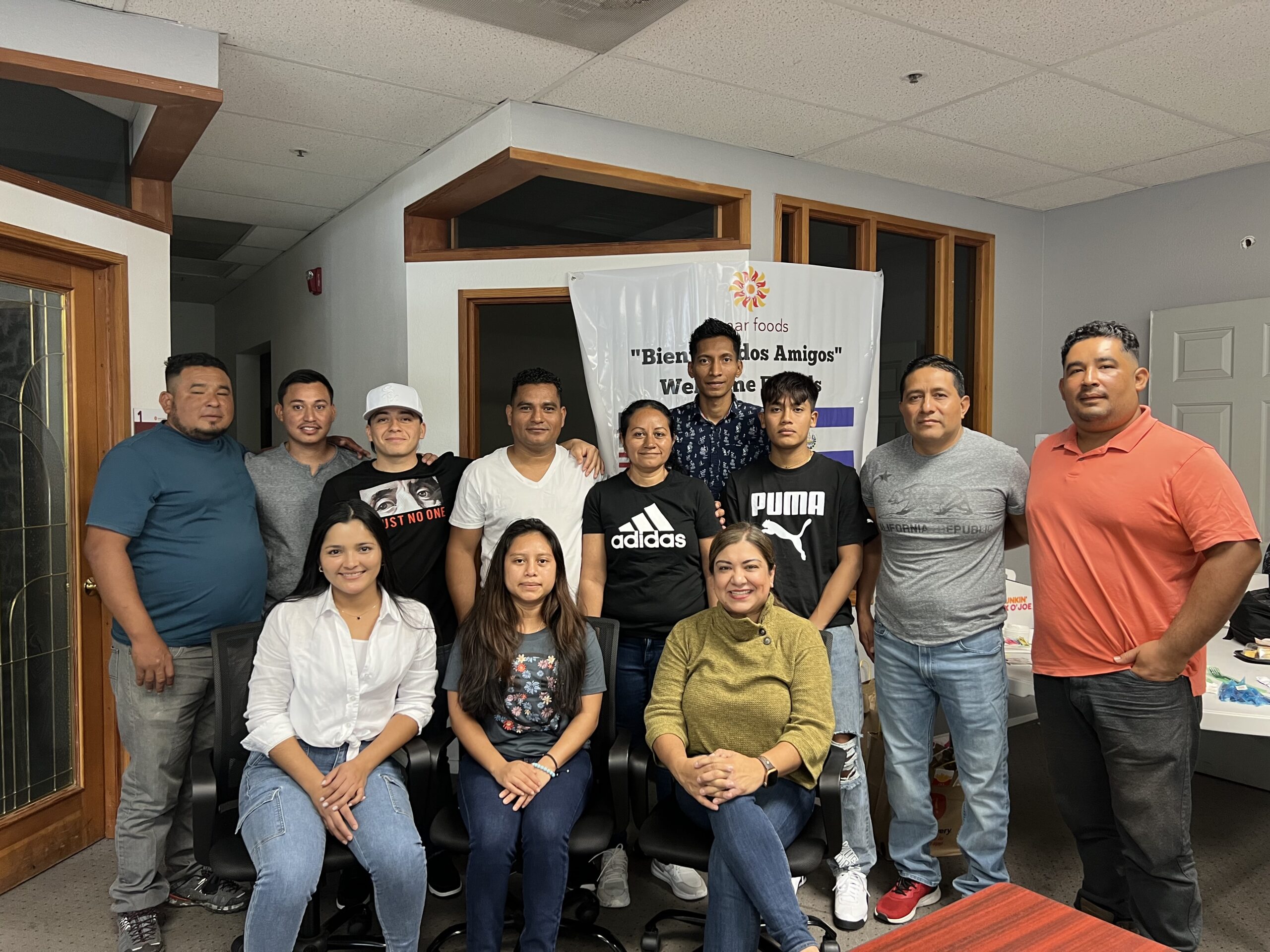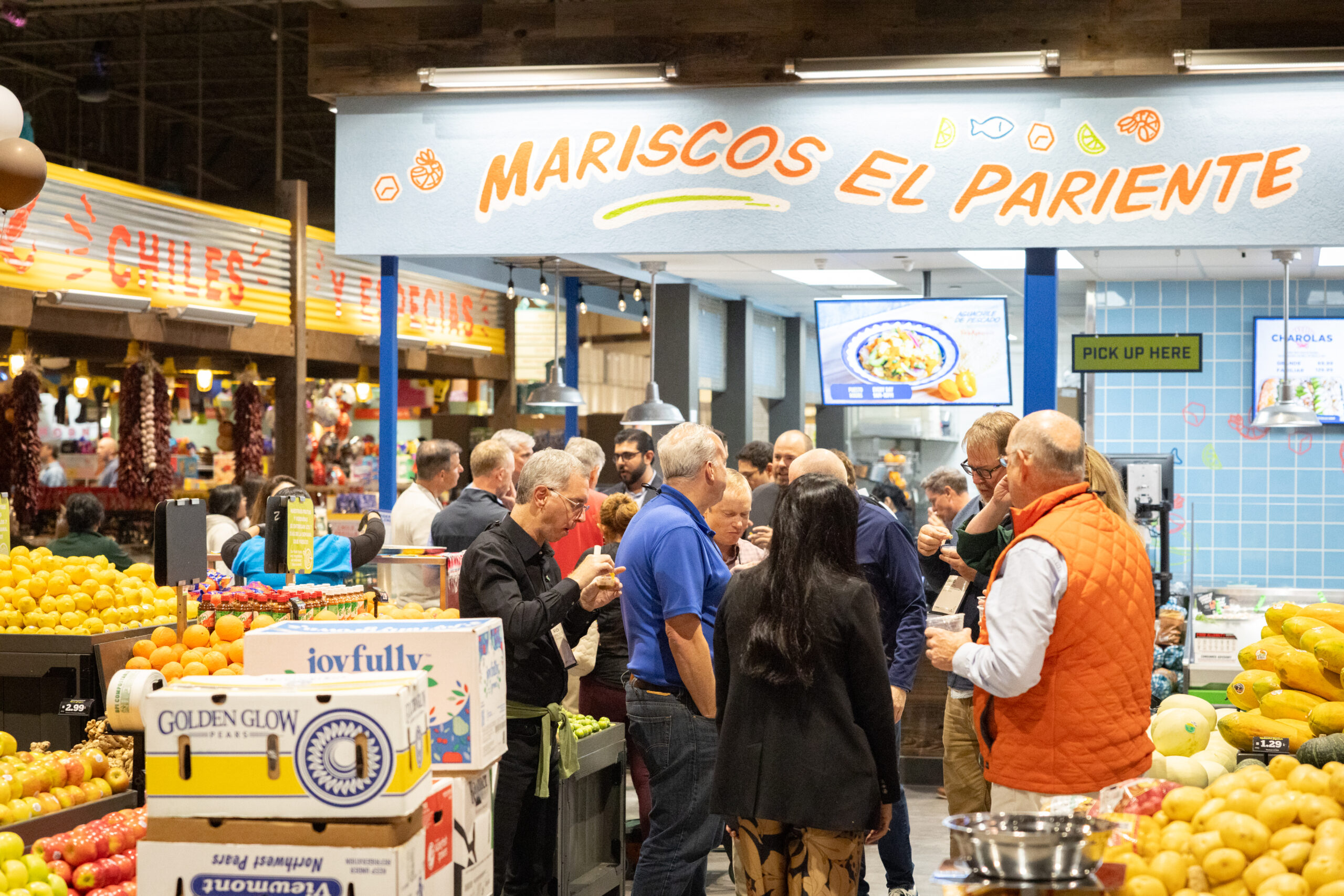

Leveraging H2B Visas for Seasonal and Cultural Success
- Susie Quesada
- Ramar Foods International
Labor shortages have been a reality for several years now, but at Ramar Foods, a Filipino-owned company with a strong People First ethos, this problem is not new. Our business is largely seasonal, and the seasonal nature of our work presents challenges not only with hiring, but also with employee retention, cultural alignment, and the inefficiencies of constant recruiting and onboarding. We’ve been searching for a solution for many years that would allow us to staff our teams all while maintaining a workplace culture that is supportive, positive, and people centric.
As we sought solutions to this problem, and especially as wages soared in recent years, we wanted to avoid a few obvious pitfalls. Seasonal employees are at high risk of being un-invested and misaligned because they know they will not be here for the long term. Local hires always have their eyes open for a better opportunity, so often we hire them, train them, and then they ghost us. Effectively integrating new, temporary employees quickly into an Evergreen® company where culture and employee satisfaction are very important is difficult, and we spend an inordinate amount of time and effort recruiting and onboarding in an ever-tighter labor market.
A couple of years ago, we had an idea. Because we are a Filipino food company, we have several international hires already, and as a result, we have some experience securing H1 visas for our full-time foreign workers. The process of sponsoring international employees can be complicated and costly, but our experience with H1 demystified it a bit. We wondered, could we tackle the seasonal hire problem through the same channel?
The equivalent visa for a short-term employee is called the H2B. H2B visas allow companies to hire foreign workers for defined periods of time up to three years. At Ramar, we seek to hire for ten months at a time. Sponsoring an H1 visa is expensive, and the H2B carries costs as well, but it is more reasonable; aside from paying them a reasonable wage, we are required to pay H2B employees’ travel to and from the States and we are responsible for making sure they have a reasonable place to live.
The H2B program is not without risks for the hiring company. The process can be complex and time-consuming. It can also be expensive, especially when it comes time to fulfill the housing requirement of the visa. Whether new hires are foreign or not, recruiting and onboarding requires time and effort, which has costs associated with it. And notably, many of the recruiting agencies that exist to ‘help’ employers find international applicants are, in fact, scams, so you have to be sure to vet the agencies carefully.
At Ramar Foods, we had some unique advantages that helped us offset the risks and costs of the H2B program. Our workforce was already multicultural. In addition to the H1 salaried employees we have hired from overseas, many of our hourly workers are recent immigrants who have maintained ties to their home countries, in particular El Salvador and Mexico. It is a wonderfully international atmosphere! Therefore, we have found that we are able to bypass recruiting agencies and recruit directly through our current workforce. We invited employees with friends and family back home in El Salvador and Mexico to present our seasonal opportunity to them and invite them to apply. We had great success and received applications from many excited and motivated applicants, even the first time around.
Because so many of the people we ended up hiring were coming to join family, we were also able to save on the housing front. Most of them planned, before we even asked them, to stay with family, thereby ensuring that they would be safe, happy, and well-taken care of outside of work. In the case where this was not possible, we stepped in and helped with housing, but this happened relatively infrequently.
When it came to onboarding new employees and helping them adjust to our culture which we value so highly, we had yet another advantage. First of all, our full-time employees, many of whom were either relatives or friends, helped make them feel at home extremely quickly. In addition to the support they provided outside of work, they were eager and willing to engage in the more formal onboarding process at work. On both sides – the new, seasonal employees and the experienced, full-time employees – the level of commitment, energy, and enthusiasm for this work was very high. It became a joyful process that did not simply meet the standard of our People First culture, but rather enhanced it further.
As we moved through the first cohort of H2B employees for the first time, in addition to the advantages we had imagined we would have through the process, we discovered some others as well. First, it turned out that the ten-month employment contract was just perfect for many employees. A traditional H1 employee, and even an H2B employee who has a longer contract, cannot easily travel back and forth between their home country and the US through the duration of their visa. There are strict requirements around how long they must stay in the country or risk invalidating their visa. With an H2B, a worker could come for ten months, earn good money, and then return home to their family for a couple months before, if they so choose, applying again. A second advantage is that many of them are choosing to apply again, which means that when they arrive the second time, they will not be new employees and will not require anywhere near the same level of investment of time and energy to train and onboard.
The enthusiasm on the side of our current employees for this initiative has been overwhelming. A group of warehouse employees decided, on their own initiative, that there was more they could do to support the cohort of seasonal workers, so they created a group they called Amigos for our friends from El Salvador. They took it upon themselves to help new employees navigate not just their new work environment, but life in the US. They created a buddy system, they organized English classes for them, and they helped them, where necessary, find the resources and services they needed to live in a new country. Thanks in great part to the work of the Amigos, we expect that we will likely be able to convert some of these seasonal workers to permanent ones eventually, further reducing stresses on our time, budget, and culture.
It has not been perfect, of course. The first year, we began recruiting a cohort from Mexico, only to learn, when we submitted the applications, that the maximum number of allowable H2B visas had already been granted to Mexican citizens. We turned instead to El Salvador, were able to recruit ten wonderful employees, and we hope to try Mexico again next time. We also have a large facility in Hawaii and would like to bring H2B workers there as well, but we know that the cost of travel will mean that it will be significantly more expensive.
Our Head of People, Maggie Carillo, articulated the simple, central reason this program is such a wonderful fit for Ramar. When she considered the challenging immigration landscape, “coupled with the US labor shortage, I knew that providing people a seasonal job would be mutually beneficial to the worker and to Ramar.” As a company that aims to put people first, this program that was initially intended to solve a strictly business problem has proven to be one of the most important culture enhancements we have implemented in a long time.
More Articles and Videos

From One Store to $1B+ Southern California Institution: The Evergreen Journey of Northgate Market
- Ryan Drew
- Tugboat Institute

Patience, Purpose, and the Path to Growth
- Bobby Jenkins
- ABC Home & Commercial Services

Profit with Purpose: Pricing Tactics for an Evergreen® Business
- Adam Echter
- Simon-Kucher & Partners

Get Evergreen insight and wisdom delivered to your inbox every week
By signing up, you understand and agree that we will store, process and manage your personal information according to our Privacy Policy



